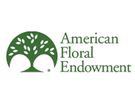Floriculture professionals value the importance of flowers to human well-being and seek sustainable production systems that enhance the environment and preserve habitat for bees, birds and other wildlife. Over the last few years, there has been the perception that the use of Neonic pesticides at any level and at any time are harmful to bees and has led to declines in bee populations. The cause of bee decline is complex involving climate change, insects and diseases that kill bees and loss of habitat among other causes.
Floricultural growers understand that although bees do not usually visit flowering crops grown in greenhouses, bees can be exposed to insecticide residues within nectar and pollen of treated plants when the plants are sold and transplanted in the landscape. Having scientifically based data on the residual Neonic levels in floriculture crops is important to the floral industry.
Results of this AFE-funded study suggest that the degradation dynamic of systemic insecticides is likely different among plant species. Even among herbaceous annual and perennial plants. Regardless of plant species, residues were not detected one year after treatment.
Results also suggest that application timing of at least two weeks before sale for foliar spray. It suggests at least four weeks before sale for medium drench will result in below-threshold residue in Rudbeckia, Salvia and Portulaca. The full report is available here.
For additional information, contact juanghc@clemson.edu.
Researchers: Juang-Horng “JC” Chong, Pee Dee Research & Education Center, Clemson University, Florence, SC; Jennifer Tsuruda, Public Service Activity, Clemson University, Clemson, SC; Stephen Klaine, Institute of Environmental Toxicology, Clemson University, Pendleton, SC
For more information
American Floral Endowment
T: +1 (703) 838-5211
www.endowment.org
